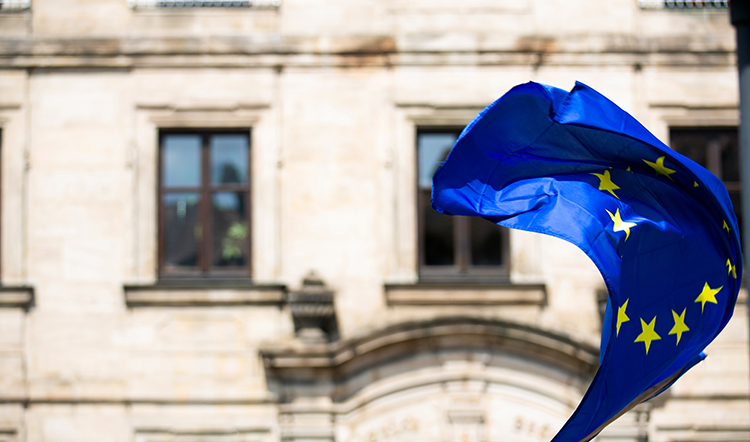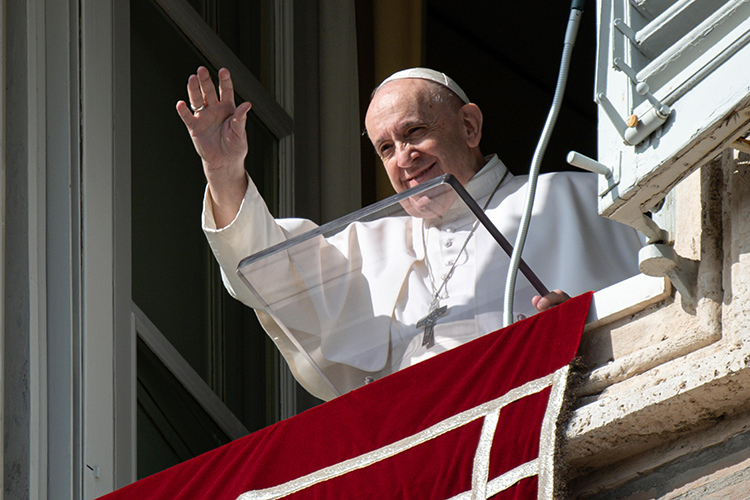Pope Francis has sent a letter to Secretary of State Card. Parolin on the occasion of the 40th anniversary of the Commission of the Bishops' Conferences of the European Union (COMECE), the 50th anniversary of diplomatic relations between the Holy See and the European Union and the 50th anniversary of the Holy See's presence as Permanent Observer to the Council of Europe.
Three anniversaries that coincide in time and are the basis of the current situation of the Holy See in Europe. On this triple occasion, the Pope Francis’ wanted to reflect on the Europe's significance in the world and the importance of its historyThe company's roots and, above all, the work for the future at a time of uncertainty such as the one the whole world is going through.
Europe's Christian roots
The Pope has defended Christian identity undeniable, including in the shaping of the various initiatives of European unity and wanted to take up the words that "St. John Paul II spoke at the European Act in Santiago de Compostela: Europa, "find yourself again. Be yourself"." because, as the Holy Father wanted to emphasize, "In a time of sudden change, there is a risk of losing one's identity, especially when the shared values on which society is founded disappear"..
Pope Francis has made specific reference to these values by appealing to the "millenary history, which is an open window to the future."and has launched an appeal not to betray "your longing for truth, which since ancient Greece embraced the earth, bringing to light the deepest questions of every human being; of your thirst for justice, which developed with Roman law and, with the passage of time, became respect for every human being and for his rights; of your desire for eternity, enriched by the encounter with the Judeo-Christian tradition, which is reflected in your heritage of faith, art and culture.".
Defense of life
The Pope has been very clear on the Europe that he "dreams" for the future by launching a meridian defense of life in all its stagesfor Europe to be . "A land where the dignity of all is respected, where the person is a value in itself and not the object of an economic calculation or a commodity. A land that cares for life in all its stages, from the moment it emerges invisible in the womb to its natural end". Nor has he left behind the importance of the family, close and common, in the sense of a community: a "family of peoples, distinct from one another, but nevertheless united by a common history and a common destiny.". In this line, as he has been doing repeatedly in his last interventions, he reminded that "the pandemic, have shown that no one can make it on their own.".
Land of hospitality and solidarity

This concept of a common family, the Pope emphasized, is to be reflected in solidarity as "fundamental expression of every community "that "demands that each take care of the other". individualism that often prevails. In a special way he wanted to emphasize "the many fears that are present in our societies today, among which I cannot hide the mistrust of migrants". recalling that "the necessary reception of migrants cannot be limited to simple operations of assistance to those who arrive, often escaping from conflicts, famine or natural disasters, but must allow their integration so that they can "know, respect and also assimilate the culture and traditions of the nation that welcomes them.".
Secularism, not secularism
Starting from this pluralistic understanding of European society, Pope Francis has taken up the idea of his predecessors with one of the clearest statements of recent years in this regard: the hope that Europe will be a land of "a healthy secularity, where God and Caesar are distinct but not opposed to each other. A land open to transcendence, where believers are free to publicly profess their faith and to propose their own point of view in society. The times of confessionalism are over, but - it is hoped - also that of a certain secularism that closes the doors to others and above all to God, because it is clear that a culture or a political system that does not respect openness to transcendence, does not adequately respect the human person.".











